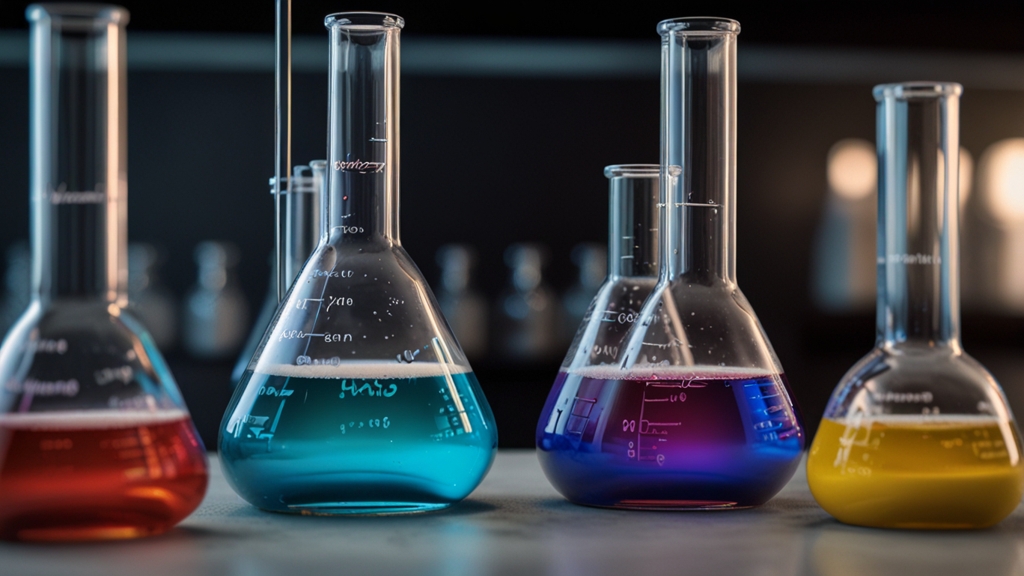The Future of Chemistry: Groundbreaking Innovations That Will Change the World
The field of chemistry is on the brink of revolutionizing not just science, but life as we know it. Rapid advancements and groundbreaking innovations are set to tackle some of the most challenging issues faced by humanity, from sustainability to healthcare. The future of chemistry promises to bring about significant changes through novel materials, pioneering technologies, and sustainable practices. Below, we explore some of the most compelling innovations that will shape the world in the coming years.
Nanotechnology: Tiny Solutions to Big Problems
Nanotechnology operates at the scale of atoms and molecules, providing a new frontier for chemical innovation. By manipulating materials at the nanoscale, scientists can create substances with unique properties that are not possible at larger scales. One notable application is in medicine, where nanoparticles are being developed to deliver drugs directly to cancer cells, minimizing damage to healthy tissue.
"The potential of nanotechnology is vast," says Dr. Jane Smith, a leading researcher in the field. "From medicine to materials science, it promises to revolutionize the way we approach problems that were previously deemed intractable."
Another exciting development is in the field of energy. Nanostructured materials are being used to create more efficient solar panels, which could lead to cheaper and more accessible renewable energy solutions.
Green Chemistry: Sustainable Solutions for a Better World
As concerns about environmental sustainability grow, green chemistry is stepping up to the plate. This branch of chemistry seeks to design products and processes that minimize the use and generation of hazardous substances. One of the key principles is atom economy, which aims to make the most efficient use of all materials involved in a chemical process.
"Green chemistry is not just a trend; it's a necessity for the future of our planet," argues Dr. Michael O'Connor, an environmental chemist. "By focusing on sustainability at the molecular level, we can make significant strides in reducing our environmental footprint."
This approach is already yielding real-world benefits. Biodegradable plastics, developed through green chemical processes, are reducing the impact of waste on our oceans and landfills. Similarly, innovations in catalysis are making industrial processes more efficient and less polluting.
Quantum Chemistry: Unlocking New Possibilities
Quantum chemistry, the study of chemical properties and reactions at the quantum mechanical level, is another area poised to bring transformative changes. The application of quantum computing to chemistry is particularly exciting. Quantum computers can perform complex calculations at unprecedented speeds, enabling the discovery of new molecules and materials that were previously beyond reach.
For example, researchers are using quantum computing to develop better batteries. By simulating the behavior of electrons within a battery, they can design materials that offer greater energy density and faster charging times. This has enormous implications for everything from electric vehicles to renewable energy storage.
The Integration of AI and Machine Learning
Artificial intelligence (AI) and machine learning are becoming invaluable tools in chemical research. These technologies can analyze vast amounts of data more quickly and accurately than human researchers, identifying patterns and predicting outcomes with remarkable precision. In drug discovery, for instance, AI algorithms are being used to screen potential compounds at a fraction of the time and cost of traditional methods.
"AI is not replacing chemists; it's empowering them to achieve more," asserts Dr. Emily Chen, a computational chemist. "It allows us to accelerate research and explore avenues that would have been too time-consuming or expensive to investigate otherwise."
Beyond drug discovery, AI is also making strides in materials science and process optimization. By predicting the properties of new materials and optimizing chemical reactions, AI is helping to bring innovative products to market more quickly and sustainably.
Conclusion: A Bright Future Ahead
The future of chemistry is incredibly promising, with numerous groundbreaking innovations on the horizon. From the minuscule realms of nanotechnology and quantum chemistry to the sustainable practices of green chemistry and the powerful capabilities of AI, the advancements in this field are set to significantly impact the world. As these technologies continue to develop, they offer a glimpse of a future where we can solve some of the most pressing challenges facing humanity, leading to a better, more sustainable world.










